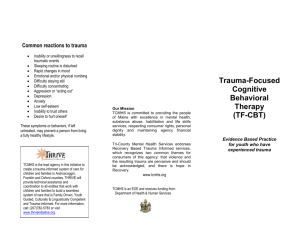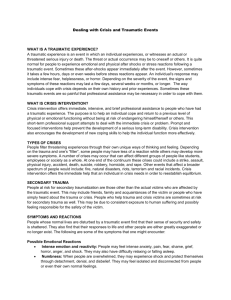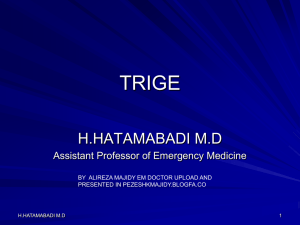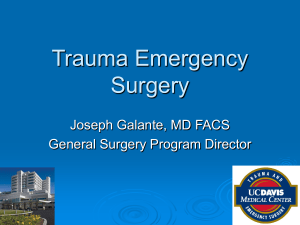Description - Khiron House
advertisement
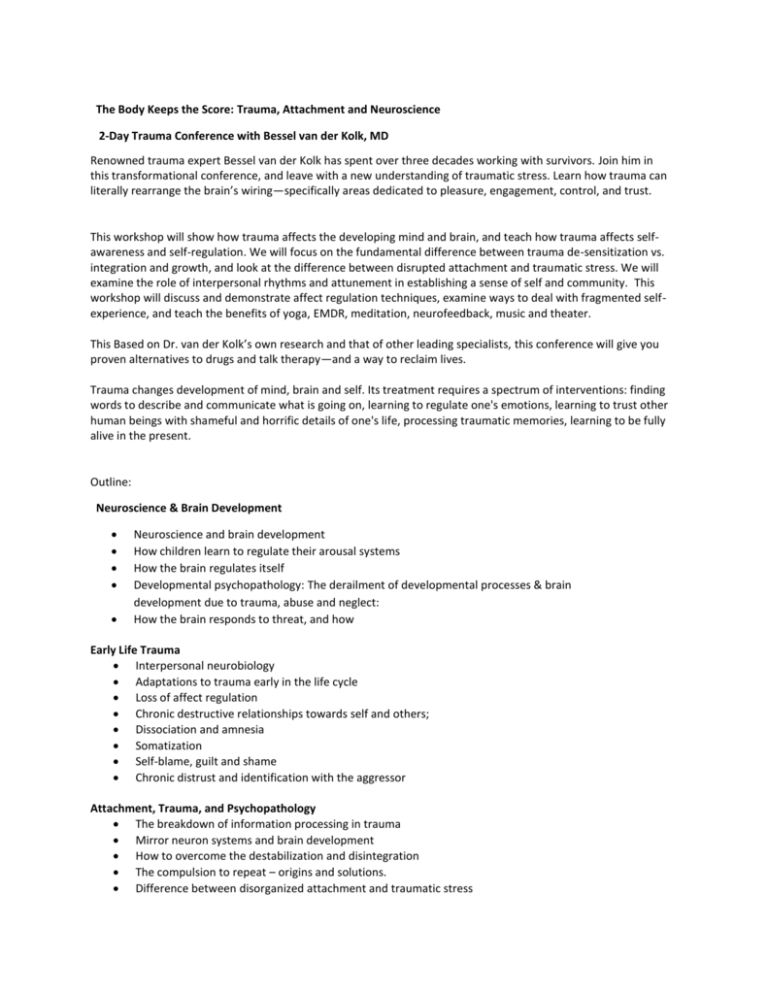
The Body Keeps the Score: Trauma, Attachment and Neuroscience 2-Day Trauma Conference with Bessel van der Kolk, MD Renowned trauma expert Bessel van der Kolk has spent over three decades working with survivors. Join him in this transformational conference, and leave with a new understanding of traumatic stress. Learn how trauma can literally rearrange the brain’s wiring—specifically areas dedicated to pleasure, engagement, control, and trust. This workshop will show how trauma affects the developing mind and brain, and teach how trauma affects selfawareness and self-regulation. We will focus on the fundamental difference between trauma de-sensitization vs. integration and growth, and look at the difference between disrupted attachment and traumatic stress. We will examine the role of interpersonal rhythms and attunement in establishing a sense of self and community. This workshop will discuss and demonstrate affect regulation techniques, examine ways to deal with fragmented selfexperience, and teach the benefits of yoga, EMDR, meditation, neurofeedback, music and theater. This Based on Dr. van der Kolk’s own research and that of other leading specialists, this conference will give you proven alternatives to drugs and talk therapy—and a way to reclaim lives. Trauma changes development of mind, brain and self. Its treatment requires a spectrum of interventions: finding words to describe and communicate what is going on, learning to regulate one's emotions, learning to trust other human beings with shameful and horrific details of one's life, processing traumatic memories, learning to be fully alive in the present. Outline: Neuroscience & Brain Development Neuroscience and brain development How children learn to regulate their arousal systems How the brain regulates itself Developmental psychopathology: The derailment of developmental processes & brain development due to trauma, abuse and neglect: How the brain responds to threat, and how Early Life Trauma Interpersonal neurobiology Adaptations to trauma early in the life cycle Loss of affect regulation Chronic destructive relationships towards self and others; Dissociation and amnesia Somatization Self-blame, guilt and shame Chronic distrust and identification with the aggressor Attachment, Trauma, and Psychopathology The breakdown of information processing in trauma Mirror neuron systems and brain development How to overcome the destabilization and disintegration The compulsion to repeat – origins and solutions. Difference between disorganized attachment and traumatic stress Neuroscience, Trauma, Memory and the Body The neurobiology of traumatic stress Learned helplessness and learned agency Restoring active mastery and the ability to attend to current experiences Somatic re-experiencing of trauma-related sensations and affects that serve as engines for continuing maladaptive behaviors How mind and brain mature in the context of caregiving systems The Diagnosis and Treatment of Trauma-Related Disorders Developmental Trauma Disorder Affect and impulse dysregulation Disturbances of attention, cognition, and consciousness Distortions in self-perception and systems of meaning Interpersonal difficulties Somatization and biological dysregulation This presentation will review the development of DTD in the DSM-5® as a diagnosis and its implications for assessment, diagnosis and treatment. Trauma-specific Treatment Interventions The role of body-oriented and neurologically-based therapies to resolve the traumatic past Alternatives to drugs and talk therapy EMDR Self-Regulation, including Yoga Mindfulness Play and Theatre Dance, Movement and sensory integration. Neurofeedback Objectives: 1. Examine & explain how traumatized people process information 2. Describe how sensorimotor processing can alleviate traumatic re-experiencing 3. Describe the range of adaptations to trauma early in the life cycle 4. Explain how trauma affects the developing mind and brain 5. Summarize the recent advances in neurobiology of trauma 6. Identify the difference between disrupted attachment and traumatic stress 7. Describe how adverse childhood experiences effect brain development, emotion regulation & cognition 8. List and describe techniques of physical mastery, affect regulation and memory processing. 9. Describe the development of Developmental Trauma Disorder. 10. Explain the current DSM-5® position on DTD. 11. Explain how to integrate various treatment approaches in your practice 12. Summarize treatment strategies alternatives to drugs and talk therapy.




